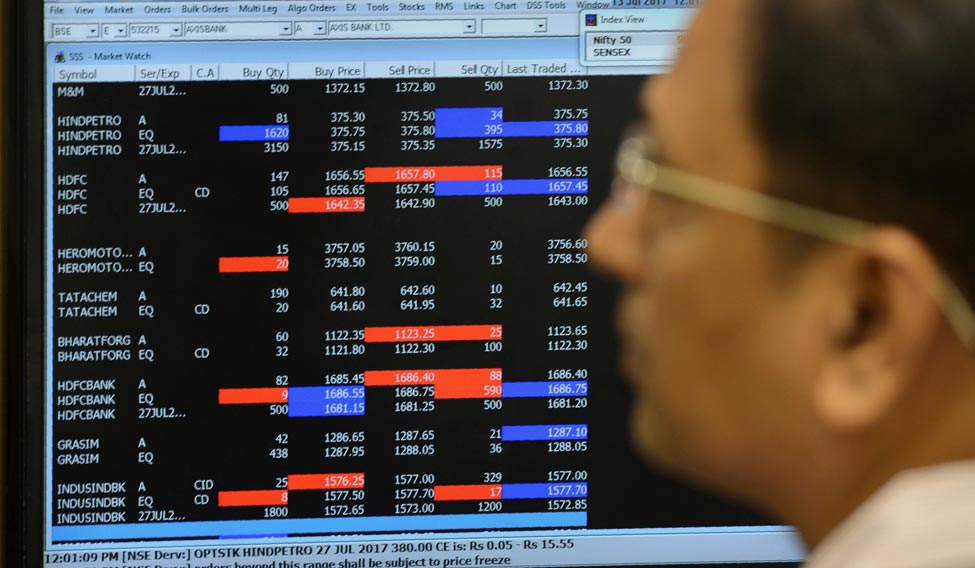It was another volatile day for the equity markets on Sept 15. Stocks opened weak as the missile test carried out by North Korea weighed high on investors' minds, but benchmark indices ended largely flat after a late recovery.
The BSE Sensex closed 31 points or 0.10 per cent higher at 32,272.61 points, but the wider NSE Nifty50 index 1 point or 0.01 per cent lower at 10,085.40 points.
Anand James, the chief market strategist at Geojit Financial Services said there had been profit booking early on “in the backdrop of geopolitical tensions from the Korean peninsula taking centrestage again.”
For the week, the Sensex closed 1.8 per cent higher and the Nifty 50 was up 1.5 per cent, reclaiming the crucial 10,000 mark.
State owned ONGC was the largest gainer among the Sensex stocks, gaining 4.7 per cent on Sept 15. Crude oil prices have firmed up in recent weeks, after two massive hurricanes affected US oil production. While high crude oil prices augur well for petroleum companies, ONGC is also ramping up its production, which should boost market sentiments.
Among other major gainers, Bajaj Auto was up by 3 per cent and Coal India rose 2 per cent. Tech stocks were also in demand, with Infosys, Wipro and Tata Consultancy Services rising 0.5 per cent to 2 per cent.
On the other hand banking stocks were under pressure, with major lenders like State Bank of India, ICICI Bank, Axis Bank and Kotak Mahindra Bank ending in the red.
Foreign Institutional Investors (FII) have been going slow on Indian markets since August. Over August and September, FIIs have sold equity worth Rs 15,855 crore. In contrast, equity mutual funds saw record inflows of more than Rs 20,000 crore in August, which is acting as a cushion to the FII outflows.
Neelkanth Mishra, MD and India equity strategist at global investment bank, Credit Suisse believes that while Indian equity market valuations are no where close to a bubble zone, “a thick fog” has descended on the economy, which remains “a house under renovation.”
The uncertainties post the implementation of various reforms like the Goods and Services Tax (GST), Real Estate Regulation Act (RERA), among other things will weigh on the near-term, he said.
“A number of structural changes like the exodus of millions of workers away from agriculture, the introduction of GST, RERA and the Bankruptcy code are breaking down vicious cycles that the economy was trapped in. However, they also introduce significant uncertainty on several macroeconomic variables in the near-term: growth, fiscal health, inflation, currency and the banking system,” added Mishra.
Mishra pointed that growth in cement demand excluding the eastern region remained a concern and truck rentals still remained weak since both the sectors are good indicators of the wider economy. Power demand, although picking up from the lows of Feb17, also remains weak, he added.
Although, there are pockets of growth, like automobile sales have remained strong and airline traffic growth has also been robust, he noted.
Overseas, most Asian markets closed higher, but European markets were trading flat to negative on Sept 15.






